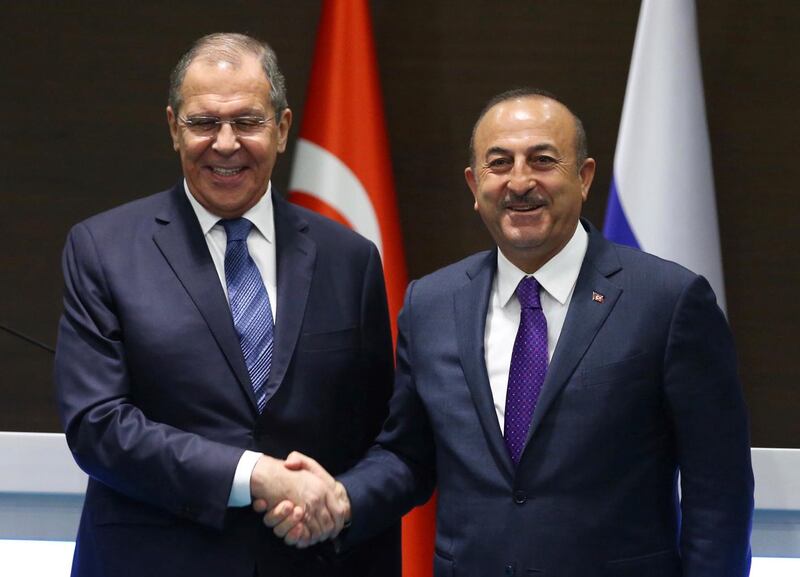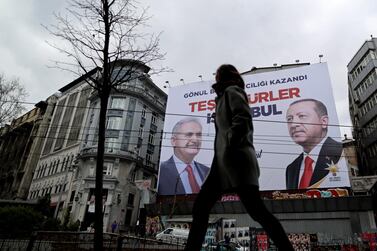Turkish Foreign Minister Mevlut Cavusoglu showed no signs of budging on the S-400 missile defence system deal with Russia on Wednesday, despite US government warnings of sanctions and possibly ending Ankara’s role in the F-35 fighter jet programme.
“The S-400 deal is a done deal, and we will not step back from this,” Mr Cavusoglu said at the Nato Engages summit in Washington on Wednesday.
He quoted US President Donald Trump's conversations with Turkish President Recep Tayyip Erdogan to defend the move.
“Trump himself admitted on the phone that the US made the mistake not to sell Patriots [missiles] to Turkey, and he promised Erdogan that he will take care of this issue,” Mr Cavusoglu said.
But senior US government officials said negotiations over the Patriots sale were continuing and that they repeatedly made it clear to Ankara that buying the S-400 would risk sanctions in accordance with US law.
“We have made very clear to Turkey that its acquisition of the S-400 will result in a reassessment of Turkey’s participation in the F-35 programme,” a senior official said.
Congressional laws will immediately impose sanctions on Turkey if the S-400 equipment is delivered in three months and a Senate bill under consideration would block F-35 deliveries to Turkey and remove it from the production programme.
US officials insist that these concerns have been communicated to Ankara repeatedly at the highest levels in the past few months.
But Mr Cavusoglu dismissed the threats and the security concerns over the S-400, saying it “doesn’t have to be integrated into the Nato system”.
He also offered the idea of a “technical working group to make sure that this system will not be a threat”.
The idea was first proposed last year but was not enough to address US concerns.
The chairman of the US Joint Chiefs of Staff, Gen Joseph Dunford, said on Tuesday: “The S-400 and the F-35, we’ve made it clear that those are incompatible systems.”
But Gen Dunford said that the Pentagon had not “given up on trying to work our way through this”.
In an address to US Congress during Nato’s 70th anniversary celebrations in Washington, the alliance’s Secretary General Jens Stoltenberg said it was not seeking a new “Cold War” with Russia, but called for greater efforts at deterrence.
“We do not want a new arms race. We do not want a new Cold War. But we must not be naive,” Mr Stoltenberg said.
“We do not want to isolate Russia. We strive for a better relationship with Russia. But even with a better relationship, we still need to manage a difficult one.”
Nato Supreme Allied Commander and the head of US European Command, Curtis Scaparrotti, said: "Although they've said, even Erdogan has said, that the S-400 is a done deal, I don't personally think it's a done deal yet.”
But privately, US officials are already looking for alternatives if Turkey is ousted from the F-35 consortium, and is reviewing production schedules if the S-400 system is delivered and installed in October.
The Pentagon has already halted the delivery of F-35 equipment to Turkey this week until it forgoes the Russian deal.







